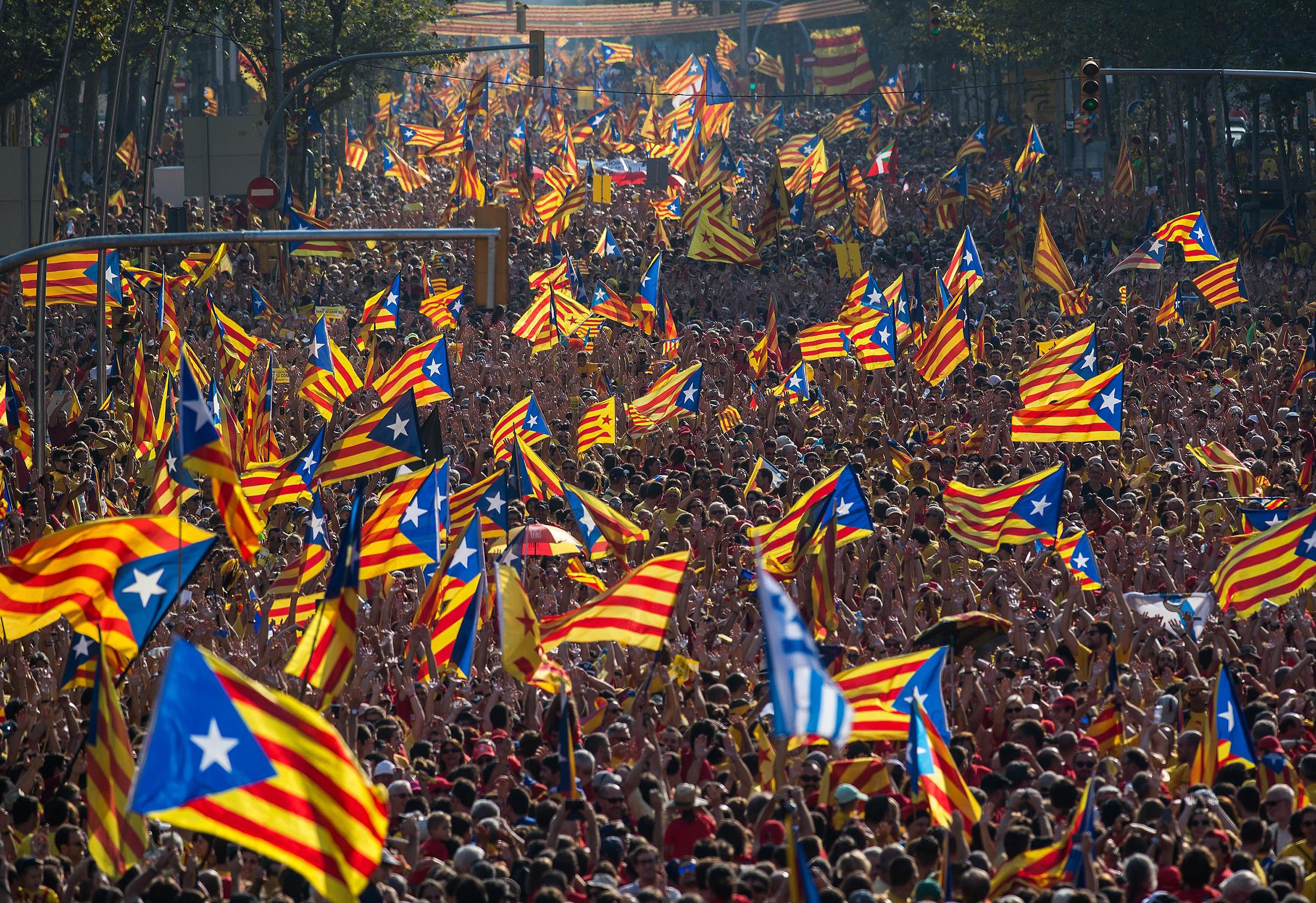The ongoing Catalan bid for independence and the political crisis between the central government in Madrid and Catalonia has opened up a divide which is creating an internal conflict within Spain that runs deep into the social fabric of the country. The divide is threatening to unravel the progress made by the county since the death of The Dictator, Francisco Franco.
A symbolic Catalan vote for independence that took place on the 9th of November asked two fundamental questions. Should Catalonia become a state? And should Catalonia become an independent state?
The symbolic test vote produced 2.3 Million votes with 80% voting both yes to becoming a state and yes to becoming an independent state. This has been the political stepping stone that independence parties need to push through early elections in 2015. Meanwhile Catalonia fights to create a constitutional reform that will open the way for a separation from Spain and the right to be a country in its own right.
The central government has continually blocked the creation of a subcommittee to begin debating a constitutional reform. Spanish Prime Minister Mariano Rajoy has famously said that he will give “no concession” to Catalonia´s demands, and refuses to recognize the symbolic referendum opinion vote of November.
Mariano Rajoy has gone as far as to file criminal complaints against the president of the Catalan Government Artur Mas for having organized the “non-binding vote” and also pushed to re-centralize power as a way to punish Catalonia. Hundreds of Catalans have gone to the Supreme Court to plead guilty for voting as part of the solidarity campaign to support Mas.
There is a strong national identity in Catalonia that seeks to distance itself from Spain. Bullfighting is banned and the Catalan language that was thoroughly opposed during the dictatorship of General Franco is gaining popularity as a language in its own right. Famously, a sign existed in Barcelona´s trams: “Prohibited: spitting, swearing and speaking Catalan.”
Every year Catalonia is forced to hand over 17 billion Euros of their taxes to Madrid´s coffers, the province which contributes the most, having a larger GDP per capita plus than the rest of the country, apart from the fact that Catalonia does not enjoy fiscal autonomy like the Basque country.
Recently allegations of corruption within the central governing party, the PP (Popular Party) have pushed the divide even further. The Catalan political parties, pushing for independence, have made the end to political corruption a central theme of their manifesto.
A famous case known as the “Barcena´s papers” has rocked Spain to its core, challenging the public perception of the political elite and the traditional two party system.
Luis Barcenas nicknamed by the police as “Luis the bastard” for years was involved in tax fraud and accepting illegal payments, he stood down from the PP in 2010 but continued to accept payments. When investigated for Political corruption 22 million Euros were discovered in a Swiss bank account and a private secret ledger indicating the current president Mariano Rajoy was receiving undeclared payments.
Catalonia has not come out of the corruption scandal unscathed ether. Its famous ex-president Jordi Pujol, who served from 1980 to 2003, is currently under investigation for having syphoned off public funds which were the channeled into fiscal paradises around the world by his sons.
One of the main reasons that Catalonia looks to independence is to stem the tide of politcal corruption that has plagued the country and instilled mistrust in the political elite to the point that the population of Spain is increasingly looking for alternative parties such as “Podemos” meaning “We Can,” a political movement which was which was born from the 15-M Indignados movement.
Regardless of the rift that seems to be threatening Spain´s social fabric, Catalonia continues to push forward the independence vote, regardless of the outcome of independence votes in Scotland and Quebec, and 2015 will be a key year for politics in Spain.
Analysis by Anthony Bain
